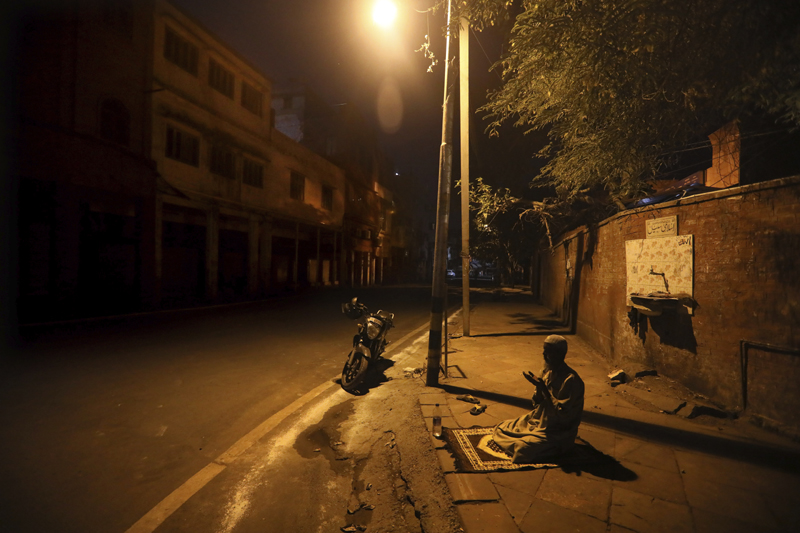The pandemic and rising Islamophobia mar Ramadan in India
SRINAGAR, INDIA: Ramadan in India, which began April 25 in the country, has been marred by the rising Islamophobia following accusations that a surge in infections was tied to a three-day meeting in March in New Delhi of an Islamic missionary group, the Tablighi Jamaat.
Some leaders of India's ruling Hindu nationalist Bharatiya Janata Party labelled the meeting as "corona terrorism." As a result, many Muslims have faced renewed stigma, threats and the boycotting of vendors who venture into Hindu-dominated neighbourhoods.
The lockdown in India, the world's most draconian, has multiplied their troubles.
A group of more than two dozen Indian Muslim scholars have appealed to their communities to strictly follow the lockdown and pray at home. They also asked Muslims to refrain from organizing large parties held for breaking the fast and "taraweeh," the extended evening prayers traditionally held in mosques.
"Families should use this unprecedented situation for spiritual guidance and purification," they said, while asking local volunteers and elders to look after the needy and destitute.
India's 200 million Muslims, 14% of the population, are the largest minority group in the Hindu-majority nation, but they are also the poorest.






